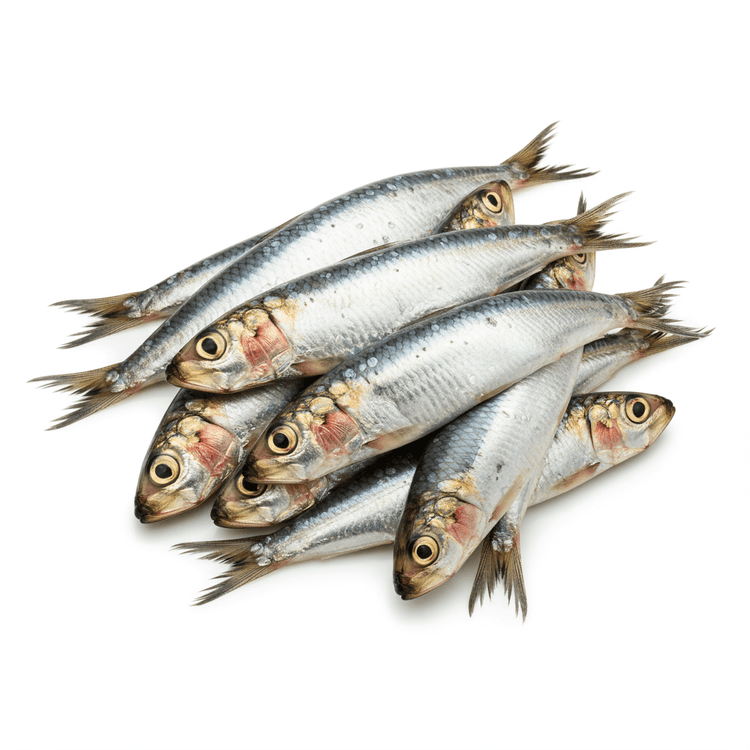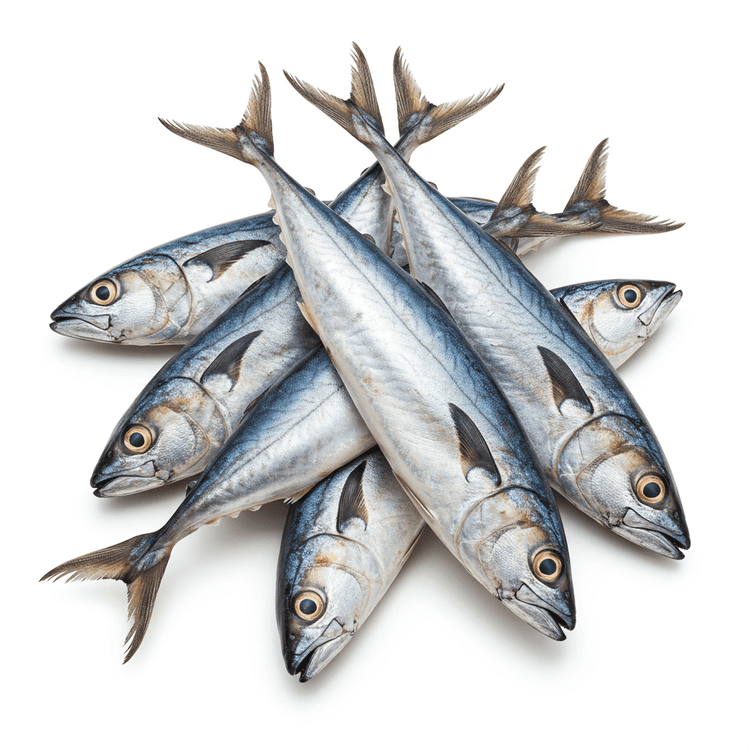
Sardine
Sardines are small, oily fish known for their rich, savory flavor and tender, flaky texture. These silver-scaled fish are packed with nutrients, including omega-3 fatty acids, protein, and essential vitamins like B12 and D. Sardines are often sold fresh, canned, or smoked, making them a versatile ingredient in a variety of dishes. Their bold taste pairs well with acidic and savory flavors, making them a popular choice in Mediterranean, Asian, and European cuisines. Sardines are also a sustainable seafood option, appealing to eco-conscious cooks.
Common Uses
- Grilled or Pan-Fried Sardines: Fresh sardines can be seasoned with olive oil, garlic, and herbs, then grilled or pan-fried for a simple yet flavorful dish often served with lemon wedges.
- Sardine Pasta: Canned sardines are a quick and nutritious addition to pasta dishes, combining well with garlic, chili flakes, and olive oil for a Mediterranean-inspired meal.
- Sardine Salad Topping: Add canned sardines to salads for a protein-packed topping that enhances the dish with a briny, umami flavor.
- Sardine Toast or Sandwich: Spread sardines on crusty bread or layer them in a sandwich with mustard, pickles, and greens for a quick, satisfying snack or meal.
- Sardine Pizza Topping: Use sardines as a unique pizza topping, pairing them with ingredients like capers, olives, and fresh tomatoes for a bold, savory flavor profile.
- Sardine Dip or Spread: Blend sardines with cream cheese, lemon juice, and herbs to create a creamy, flavorful dip or spread for crackers and bread.
Nutrition (per serving)
Nutrition (per serving)
Calories
208.0kcal (10.4%)
Protein
25.0g (50%)
Carbs
0.0g
Sugars
0.0g
Healthy Fat
10.5g
Unhealthy Fat
1.5g
% Daily Value based on a 2000 calorie diet
Nutrition (per serving)
Calories
208.0kcal (10.4%)
Protein
25.0g (50%)
Carbs
0.0g
Sugars
0.0g
Healthy Fat
10.5g
Unhealthy Fat
1.5g
% Daily Value based on a 2000 calorie diet
Health Benefits
- Rich in omega-3 fatty acids, sardines support heart health and brain function, making them a popular choice for nutrient-dense meals.
- Packed with high-quality protein, sardines are ideal for muscle repair and overall energy.
- Sardines are an excellent source of calcium and vitamin D, promoting strong bones and teeth.
- Contain selenium and B vitamins, which contribute to immune support and energy metabolism.
- Low in mercury compared to larger fish, sardines are a safer seafood option for regular consumption.
- Their bold, savory flavor enhances dishes like salads, pasta, and spreads, making them versatile in cooking.
Substitutes
Chefadora AI is here.
Experience smarter, stress-free cooking.
Storage Tips
Fresh sardines should be stored in the coldest part of your refrigerator and used within 1-2 days for optimal freshness. If canned, keep them in a cool, dry pantry until opened. Once opened, transfer leftovers to an airtight container and refrigerate for up to 2 days. For longer storage, sardines can be frozen; wrap them tightly in freezer-safe packaging to prevent freezer burn and maintain flavor.
Marnirni-apinthi Building, Lot Fourteen,
North Terrace, Adelaide, South Australia, 5000
Australia

